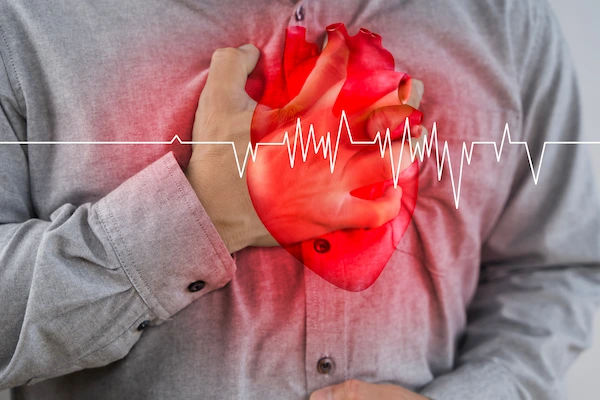- female
- 45 Years
- 20/02/2025
I've been noticing this feeling of palpitations or a flickering sensation in my chest about two or three times a day, and it lasts between 5 to 10 seconds. I had some tests done, like an ECG, an echo, and a TMT, and they all came back normal. Should I be worried about this, or is this something that can happen even if those tests are alright? Is there anything else I should consider or do?
Answered by 1 Apollo Doctors
Experiencing palpitations or flickering in the chest for brief periods, despite normal ECG, echo, and TMT results, is often benign and can be related to factors such as stress, caffeine intake, anxiety, or hormonal fluctuations. While these sensations can be unsettling, they are usually not a cause for concern if cardiac tests are normal. To manage these symptoms, consider reducing caffeine and alcohol intake, practicing stress-relief techniques such as mindfulness or yoga, and ensuring adequate hydration and sleep. If the palpitations persist or worsen, consult your healthcare provider for further evaluation and to discuss additional monitoring, such as a Holter monitor, to capture intermittent episodes.
Dr. Chandra Suggests...
Consult a Cardiologist
Answered 04/07/2025
0
0

More Cardiology Health Queries
View allI'm curious about when to take Ecosprin AV75. I've heard it might be better to take it at night before bed, but can it be taken in the morning as well? Is there a significant difference, or does one time work better than the other? I'd love some guidance on this.
it is necessary to take the tablet at bedtime only.
Answered by 1 Apollo Doctors
Which arm to measure blood pressure right or left?
Both the arms can be used for BP measurement and sometimes, your doctor might take two readings from two arms to check for any variations too. Generally, it's best to take your blood pressure from your left arm if you are right-handed.
Answered by 1 Apollo Doctors
Can we drink milk in high blood pressure?
Milk products contain key blood pressureâlowering nutrients, including calcium, potassium and magnesium. âMilk products also contain a special type of proteins, called bioactive peptides, which have been shown to have a positive effect on blood pressure control
Answered by 1 Apollo Doctors
Disclaimer: Answers on Apollo 247 are not intended to replace your doctor advice. Always seek help of a professional doctor in case of an medical emergency or ailment.



